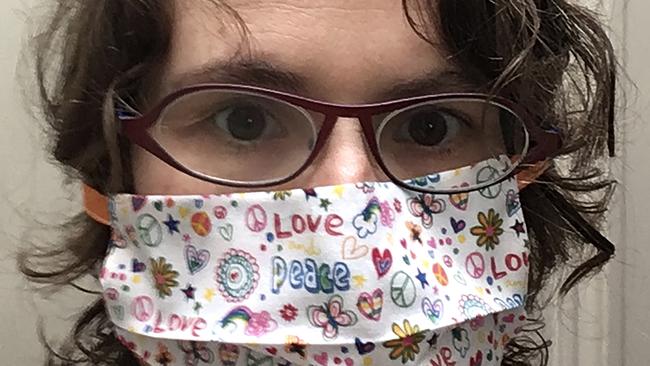Experts warn against use of homemade face masks to protect against COVID-19
Some people have taken to sewing machines in a bid to protect themselves from coronavirus with homemade face masks. But experts have warned they may do more harm than good.

North
Don't miss out on the headlines from North. Followed categories will be added to My News.
People using cloth masks to protect against coronavirus are giving themselves a false sense of security and may be even creating health risks, experts say.
With fears of contracting coronavirus growing, some people around Brisbane are making their own masks from material such as cotton, and are taking to social media to encourage others to do the same.
$1 for 28 days: Full digital subscription
Some are offering for sale on Facebook what appear to be masks made from cloth or clothing fabric.
Professor of Infectious Diseases Epidemiology Raina MacIntyre and epidemiologist Abrar Ahmad Chughtai, both from the University of New South Wales, said wrapping cloth around your face probably would not protect you.
They said cloth would not provide a tight fit around the face, was not designed to filter out air and may be contaminated.
Cloth masks may even increase your risk of infection, especially if not washed regularly, as they may absorb moisture and provide a breeding ground for bugs, they said.
Surgical masks and respirators (which offer a higher degree of filtration) are made with a filtration material consisting of a microscopic plastic mesh produced using an expensive process called melt-blowing.
MORE NEWS:
Over-50s resort resident positive for coronavirus
Hotel group stands down more than 400 staff
Virus forces popular buffet restaurants to close
University of the Sunshine Coast nursing lecturer Matt Mason, who is working with the Collaborative for the Advancement of Infection Prevention and Control, also urged people not to use homemade masks.
“Potentially, wearing a mask could give someone a false sense of security,” Mr Mason said.
“This may lead them to be less likely to remain at home if unwell as they may think they have been protected my wearing the mask.
“Not only would a homemade mask not work as consistently, or as well, as a TGA approved one would, wearing a mask encourages people to touch their face which in turn increases the risk of transferring microorganisms from the environment to their mucosa.
“Doffing (taking off) PPE (personal protective equipment) is a particular skill and is a point where people do get infected.
“It requires practice and meticulous attention to detail, homemade masks often increase this risk.”
The World Health Organisation (WHO) said cloth (e.g. cotton or gauze) masks were not recommended “under any circumstance”.
And the WHO recommended healthy people only wear a surgical mask if they were taking care of someone with suspected COVID-19 infection, or if they were coughing or sneezing.
It said, for people without symptoms, a medical mask was not required as “no evidence is available on its usefulness to protect non-sick persons”.
A Queensland Health spokesman said, based on current advice, only people who had travelled overseas, were unwell and had access to a face mask should use one.
“For anyone else who does not have symptoms, a face mask is not necessary,” he said.


